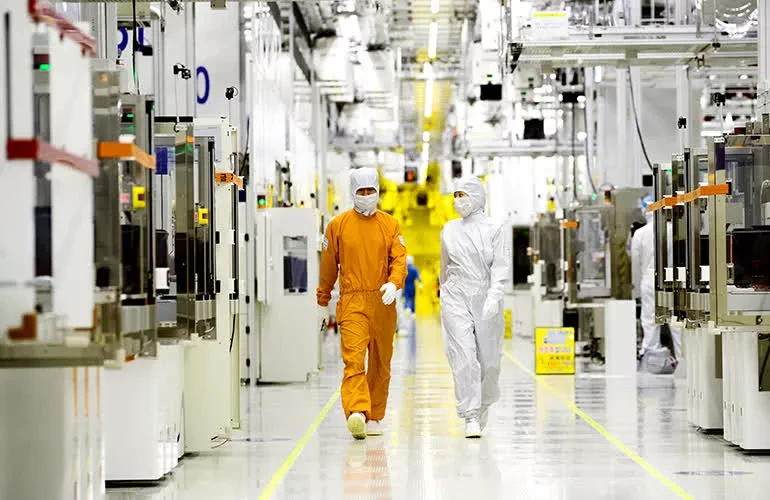Samsung‘s Drive Towards Human-Free, Fully Automated Fabs
In a groundbreaking development, Samsung is reportedly making plans to transition all its fabs into fully automated facilities within the next six years, representing a bold step toward the future of Manufacturing.
Smart Sensing System for Enhanced Production
Samsung Electronics has embarked on the development of a proprietary Smart Sensing System, designed to revolutionize semiconductor production by increasing chip yield and enhancing overall Manufacturing processes. The introduction of this cutting-edge system signifies a significant leap forward in the company’s technological prowess.
Impact of the Smart Sensor technology
The Smart Sensing System encompasses a range of capabilities, such as measuring plasma uniformity for wafers, a critical factor influencing the effectiveness of processes such as etching, deposition, and cleaning. Embracing a tiny form factor, the sensor is seamlessly integrated into the fabs, without imposing substantial alterations to the existing infrastructure.
Utilization and Origin of the Smart Sensor
This pioneering technology is not only designed in South Korea, but it is also manufactured within the country. Typically, such advanced technologies are sourced from international entities, underscoring the remarkable achievement by Samsung in bolstering its indigenous technological capabilities.
The Drive for Automation
While the implementation of the Smart Sensing System stands as a significant feat, it forms part of a more comprehensive strategy pursued by Samsung: the creation of Artificial Intelligence fabs – fully automated facilities, thereby obviating the need for human labor.
Implications of Automation
The advent of AI and automation has rekindled concerns regarding widespread job displacement, particularly as companies like Samsung delving into the realm of fully automated plants, suggesting an imminent shift from human-oriented production systems.
Global Workforce and Impact of Automation
With a sprawling global footprint encompassing assembly plants and sales networks across 74 countries and an extensive workforce exceeding 270,000 individuals, the potential deployment of technology capable of automating an array of tasks could conceivably trigger substantial workforce reduction.
Comparative Study: amazon‘s Automation Initiatives
The move towards automation does not solely rest with Samsung, with notable comparisons drawn to amazon‘s progressive adoption of warehouse automation. amazon‘s introduction of advanced machines highlights an industry-wide focus on maximizing efficiency through technology-driven automation.
Subtle Distinctions among Automated Systems
Notably, while amazon‘s automation initiatives primarily revolve around augmenting human capabilities and streamlining operational processes, Samsung’s pursuit leans heavily towards the establishment of self-sufficient, human-free facilities.
Ongoing Debate: Impact of Automation on Employment
The cogent debate surrounding the advent of AI and automation, fuelling speculations regarding the potential erosion of traditional employment avenues, has intensified in the wake of Samsung’s forward-looking plans for automation.
Technological Advancements and Future Workforce Dynamics
As technology luminaries such as Elon Musk forewarn of the profound impact of AI and automation on employment, the discourse surrounding the future economic landscape and the viability of sustaining a workforce within the purview of rapidly evolving technologies has gained considerable traction.
Concluding Thoughts
The trajectory towards human-free, fully automated fabs heralds a seismic shift in the Manufacturing landscape, with Samsung spearheading a paradigm shift that could potentially redefine industrial conventions. It signifies a pivotal moment in the evolution of Manufacturing, with far-reaching implications for the workforce and broader socio-economic dynamics.
Source: techspot








No Comments